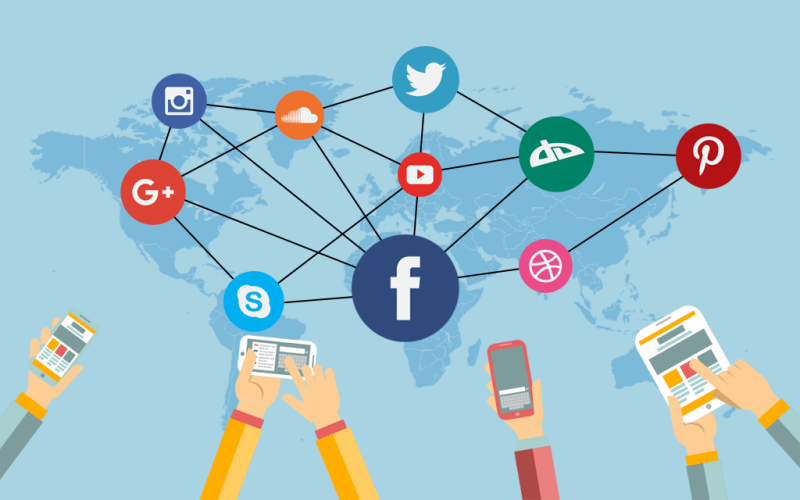Introduction
In today’s world, social media is woven into nearly every relationship. From texting on Instagram to sharing milestones on Facebook, our digital footprints shape how we connect with family, friends, and partners. But while these platforms can bring us closer, they also introduce challenges—misunderstandings, jealousy, and digital overload. Understanding social media’s impact on relationships helps us strike a balance between online engagement and real‐world closeness. In this article, we’ll explore both the benefits and drawbacks of social media, examine its effects on trust and communication, and offer practical tips for nurturing healthy connections in the digital age.
The Upside: How Social Media Strengthens Bonds
1. Staying Connected Across Distance
- Instant Updates: Share photos, videos, and messages in real time, keeping distant relatives and friends in your daily life.
- Group Chats: Family members can check in via WhatsApp or Messenger, making coordination and support easier than ever.
- Virtual Celebrations: When in‐person gatherings aren’t possible, live streams and video calls let you mark birthdays and holidays together.
2. Support Networks and Communities
- Special Interest Groups: Facebook and Reddit host groups for new parents, chronic illness support, and hobbyists—fostering empathy and advice.
- Crowdsourced Help: Crowdfunding links and event invites rally friends around causes, from medical bills to community projects.
- Peer Encouragement: Positive comments and “likes” boost confidence, especially when sharing personal wins.
3. Rekindling Old Friendships
- Class Reunions Online: LinkedIn and alumni pages make it simple to reconnect with classmates and former coworkers.
- Memory Sharing: Tagging old photos and “Throwback Thursday” posts spark conversations and nostalgic bonding.
By tapping into these features, social media can be a powerful tool for maintaining and growing relationships, even when life keeps us busy or miles apart.
The Downside: When Social Media Strains Relationships
1. Miscommunication and Misinterpretation
- Lack of Tone: Text and emojis often replace vocal inflection, leading to unintended offense or confusion.
- Read Receipts Pressure: “Seen” notifications can create anxiety when messages go unanswered.
- Public vs. Private: Mistakes in tagging or public shaming can spark hurt feelings and damaged reputations.
2. Jealousy and Comparison
- Highlight Reels Only: People post their best moments—vacations, promotions, perfect selfies—fueling envy in viewers.
- Relationship Policing: Monitoring partners’ likes and comments can erode trust and spark conflict.
- Fear of Missing Out (FOMO): Scrolling through event photos you weren’t invited to can deepen feelings of exclusion.
3. Digital Overload and Distraction
- Attention Fragmentation: Constant notifications disrupt in‐person conversations and reduce quality time.
- Sleep Disruption: Late‐night scrolling can lead to insomnia, mood swings, and decreased empathy.
- Screen Dependency: An inability to “unplug” can make partners or friends feel secondary to devices.
Balancing screen time with real‐world interaction is crucial to avoid these pitfalls.
Social Media and Romantic Relationships
Impact on Communication
- Quick Check‐Ins: Texting or direct messaging during the day helps maintain closeness.
- Creative Connection: Sharing GIFs, voice notes, or geotagged photos keeps conversations lively.
- Boundaries Needed: Agree on “device‐free” times—like dinner or bedtime—to ensure undivided attention.
Trust and Transparency
- Mutual Agreements: Discuss what counts as respectful social media behavior—commenting on exes, flirting, or private messaging.
- Open Dialogue: If jealousy arises, address it calmly rather than snooping through accounts.
- Privacy Settings: Use blocking and custom friend lists to control who sees what, protecting both partners’ comfort.
Navigating Conflict
- Avoid Public Arguments: Posting complaints or passive‐aggressive comments on each other’s walls escalates conflict.
- Switch to Private Channels: Move tense discussions from comment threads to private chats or face‐to‐face talks.
- Use “I” Statements: Focus on your feelings (“I felt hurt when…”) rather than accusing (“You always…”).
Healthy couples set clear expectations for social media use, treating it as a shared rather than divisive space.
Family and Friendships in the Digital Age
Parental Monitoring vs. Privacy
- Age‐Appropriate Controls: Parents can guide teens with social media but should respect growing independence.
- Open Communication: Discuss online risks—cyberbullying, privacy, digital footprints—before imposing strict bans.
- Model Behavior: Children learn from adults; demonstrate balanced social media habits and respectful posting.
Friendships and Social Media
- Event Coordination: Facebook events or group chats simplify planning meetups or group trips.
- Shared Memories: Collaborative albums on Google Photos or shared stories on Snapchat reinforce group identity.
- Conflict Management: If a friend’s post upsets you, address it directly rather than silent unfriending.
Strong offline friendships translate into positive online interactions, so prioritize face‐to‐face connections.
Mental Health Considerations
Positive Effects
- Access to Support: Mental health communities offer anonymity and solidarity.
- Inspirational Content: Wellness influencers and motivational quotes can boost mood and resilience.
Negative Effects
- Anxiety and Depression: Excessive use correlates with lower self‐esteem and sadness in some studies.
- Comparison Trap: Viewing others’ successes may magnify personal insecurities.
- Cyberbullying: Online harassment can have real mental health consequences, especially for minors.
Setting healthy limits—such as app timers or social media fasts—fosters better emotional well‐being.
Strategies for Healthy Social Media Use
- Set Time Limits: Use built‐in smartphone tools to cap daily social media time.
- Curate Your Feed: Unfollow accounts that trigger negative feelings; follow positive, informative sources instead.
- Schedule “Offline” Moments: Designate family dinners or weekend outings as screen‐free zones.
- Engage with Purpose: Post intentional, authentic updates rather than mindless scrolling.
- Practice Digital Empathy: Pause before commenting—consider how your words might affect others.
These simple habits help you enjoy the upsides of social media while protecting your relationships.
Conclusion
Social media reshapes relationships in profound ways—keeping us connected across miles, fueling support networks, and offering new channels for expression. Yet it also brings challenges: miscommunication, envy, and digital overload. By understanding social media’s impact on relationships, setting clear boundaries, and practicing mindful usage, we can harness its benefits while safeguarding our most important bonds. Embrace quality interactions both online and off, prioritize empathy, and remember that no notification is more valuable than genuine, face‐to‐face connection. With balanced social media habits, your relationships will not only survive but thrive in the digital age.










